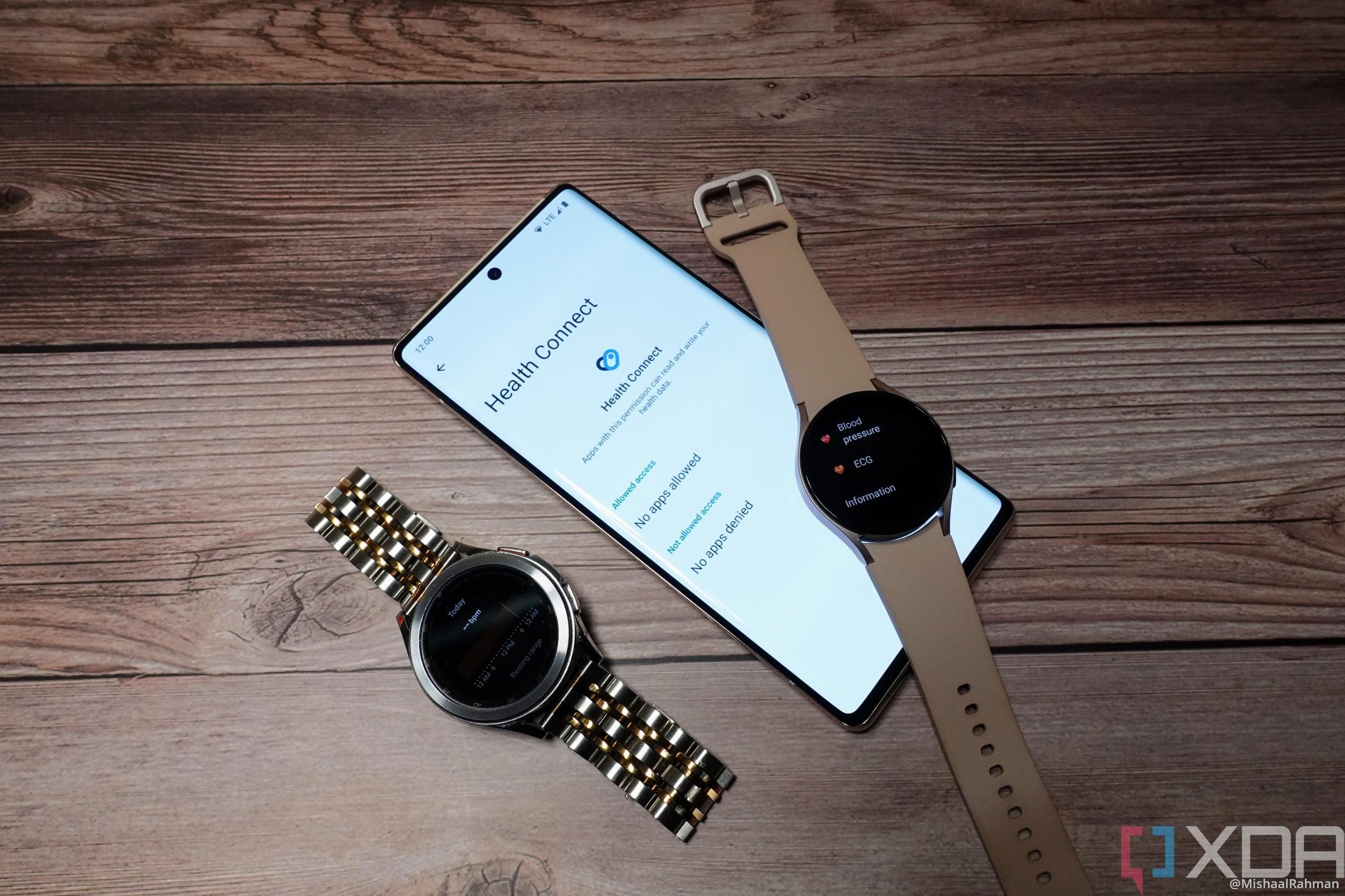If you’re serious about losing weight, getting fit, or watching what you eat, then your smartphone can be an invaluable tool in your health and fitness arsenal. However, many people find that one app just isn’t enough to keep track of everything they need. Using multiple health and fitness apps can be a pain, though, because interconnectivity between them can be either nonexistent or very limited. To solve that problem, Google and Samsung teamed up on a platform called Health Connect, and it could become part of the out of the box experience for every device that runs Android 14.
Google announced Health Connect at I/O 2022 last year. It’s a platform that makes it easier for apps to share health and fitness data with one another. It standardizes how apps record health and fitness data so that developers don’t need to code different integrations for each and every service they want to sync their data with. The Health Connect platform consists of two parts: an API that developers call and an app that lets users manage their data and control which services have access to that data.
The Health Connect app is a key part of the platform. After all, it’s what’s actually responsible for securely storing and managing the user’s health and fitness data that other apps tap into via the API. Without the app, there’s no data for other apps to sync. Fortunately, the Health Connect app is just a few taps away from being installed on any device running Android 9 or higher with Google Play Services.
Unfortunately, it requires a few taps to install Health Connect, and that immediately limits its reach because users have to know it exists so they can go download it. The limited userbase of Health Connect (the app’s been downloaded on anywhere between 1-5 million devices) means that some developers might not see the worth in supporting the platform, though fortunately Google’s worked closely with a lot of companies to add support prior to launching it. Still, it would be better for the long-term health of the platform if more users knew about it.
One solution would be to bake Health Connect into the OS so it’s available on every Android device, and that’s exactly what Google might be doing in Android 14. Android 14 DP1 ships with a new APEX file that has the package name com.[google].android.healthconnect. APEX, if you’ll recall, is an Android-specific file format that’s used in Project Mainline. Project Mainline modularizes system components into either APK or APEX format so that they can be updated via Google Play, an update delivery mechanism you may have heard referred to as “Google Play System Updates.”
Within the Health Connect APEX is a version of the Health Connect app that has a different package name (com.[google].android.healthconnect.controller) than the one that’s available through Google Play (com.google.android.apps.healthdata). The different package name makes sense here because Android doesn’t allow you to install an app that has the same package name as an already installed app, and many users upgrading to Android 14 will have already installed Health Connect from Google Play.
For those users who have already installed the Google Play version of the app and populated it with data, Android 14 may let them migrate their data to the system version. An app that holds the new MIGRATE_HEALTH_CONNECT_DATA permission will have the ability to migrate data from the Google Play version of Health Connect to the system version. MIGRATE_HEALTH_CONNECT_DATA has a protection level of “knownSigner|signature”, so it can only be granted to apps signed with the platform certificate or apps signed with a known signing certificate defined in the array “config_healthConnectMigrationKnownSigners.”
One downside of the system version of Health Connect having a different package name is that apps will need to be updated to be aware of it. Currently, apps that use the Health Connect API check whether the Play Store version of the app is installed, but it would no longer be proper to assume the API isn’t available if that version of the app isn’t installed. Google will likely update the Health Connect support library so that developers don’t have to worry about figuring out which version of the app is installed, however. The Health Connect intent action, for example, is being updated to open settings for the right version of Health Connect installed on the device.
Given what we know so far, it’s reasonable to think Health Connect will be a new Project Mainline module in Android 14. If so, that means Google will be able to directly push updates to it through Play System Updates, provided that OEMs are required to distribute Google’s signed version of it. Even if they aren’t, though, the fact that it’s now in an APEX file should mean that, unless it gets scrapped before Android 14’s release, its source code will become public with the AOSP release. In fact, a new repository called “HealthFitness” has already sprung up in AOSP under the android/platform/packages/modules location, suggesting that this will indeed happen.

